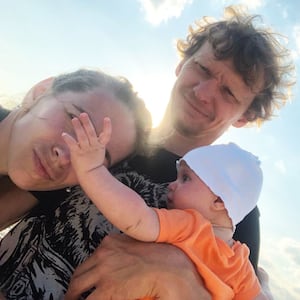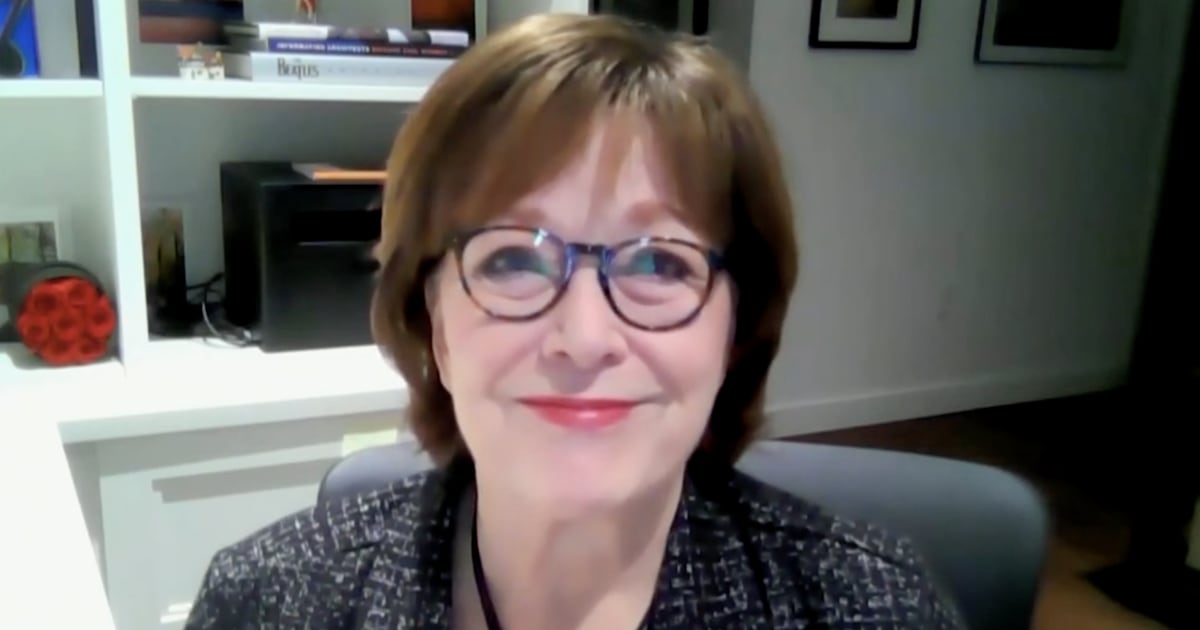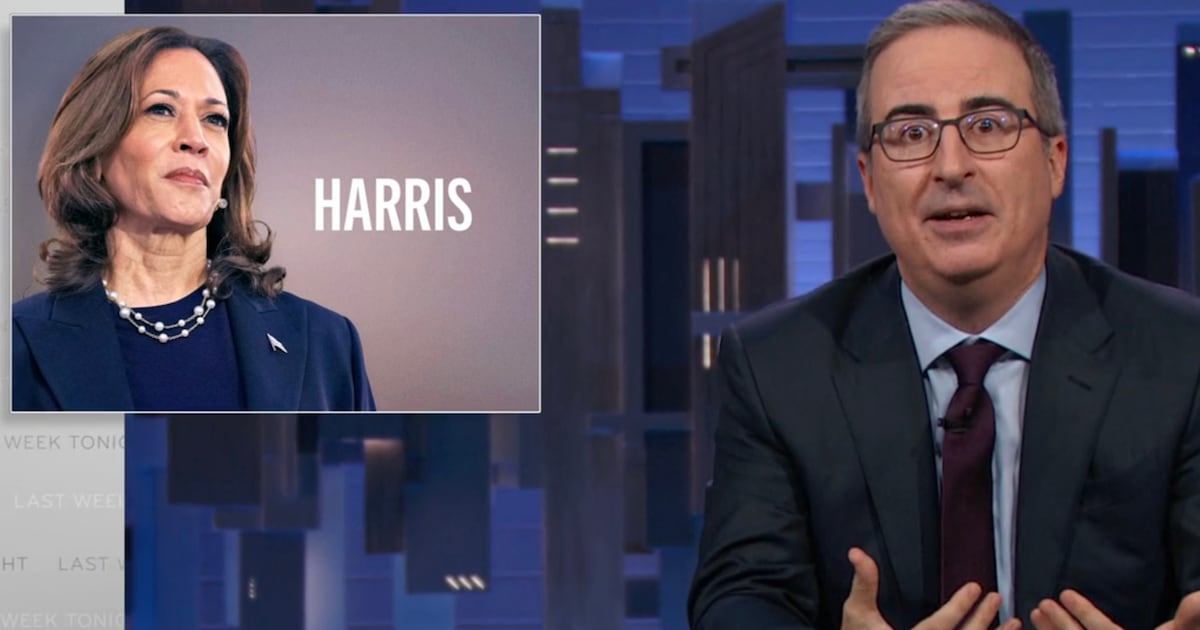For journalists covering the Ukraine war, months of continual violence and tragedy take a toll. The feeling is of suffocation. It’s even more devastating to be working under pressure while constantly worried about the people you love.
In the first two weeks of the war alone, many reporters lost their homes to Russian artillery fire in cities that were turned into battlefields. They had to keep churning out the news while simultaneously looking for shelter for their parents and kids.
Then our first colleagues got killed.
ADVERTISEMENT
There was no doubt the war in Ukraine was going to last for months, that we would see lots of colleagues with depression and post-traumatic stress. I asked my friend, a Ukrainian journalist and founder of Zaborona Media, Katerina Sergatskova, if it would be useful to bring Ukrainian reporters out of the country for a short break. “If you don’t, we’ll go nuts,” she said.
With the help of independent donors, friends and a charity, I created a shelter in Portugal, in the safety of Western Europe. It was near the ocean where you could walk, breathe and relax. I called it Breather, since I had found long walks in the fresh air to be the best way to recover from the stress of war reporting.
The sanctuary opened in March and has since hosted 16 reporters, sometimes with their families.

One of the first colleagues to visit, Hanna Silayeva, had spent the first two first months of the war working out of a basement in her hometown of Kharkiv. On the second day at Breather, Silayeva, who is a manager at the Ukrainian Broadcasting Company, was feeling guilty not to be with her country, not to be able to work and cover the news while missiles targeted her home city. We talked a lot on the balcony looking at the ocean or on our long walks, we shared memories, stories, ideas. She said she felt like she was facing “a dead end” in her professional life and would have to quit journalism.
But several weeks after her stay in Portugal, Hanna sent me an inspiring note: not only had she returned to Kharkiv, but she was back to reporting. “That chance to dive out and distance myself from the war for some time was priceless—that was both an emotional and physical respite, plus an aesthetic pleasure. Collectively that managed to convince my brain to relax. Of course, you don’t forget about the war not even for a minute. But you get strength, the desire to live on,” Hanna wrote to me this week. “Being in the combat zone I could not imagine it would be possible to have this kind of a pit-stop. I charged my batteries, filled up my fuel tank, changed my tires—that was my turning point, which helped me to return to Kharkiv and start a new project.”
The charity helping the shelter, The Romulus T. Weatherman Foundation, is experienced in rescuing people from devastated areas: last year, the foundation evacuated and resettled Afghan athletes and musical stars of Afghanistan’s National Institute of Music. Its founder, Bess Weatherman, comes from a family of reporters. Given her background, she said, it was important for her to create a haven for Ukrainian reporters. “My parents, who chose the profession of journalism to make the world a better place, would be so proud to know that we have created a place to provide essential respite and regeneration to scores of journalists risking their lives and mental health in the Ukrainian war zones.”
The journalists visiting Breather are women— often with their children—as most men are banned from leaving the country while the war rages on.

People stand outside a partially destroyed educational and laboratory building of a college hit the day before by a rocket in Kharkiv on June 21.
Sergey Bobok/AFP via GettyI was a mother when I started reporting on crises in Europe, Asia, and the Middle East 20 years ago. I have experienced abductions, interrogations, flashbacks after bombings, nightmares and depression. I am not a psychologist but a crisis reporter, so I found it hard to decide whether I should talk with my colleagues about the war, the devastation and destruction—or avoid the most painful topics, letting the women staying at our shelter actually breathe and not cry day and night. It turned out that each reporter had her own way: some needed quiet, others preferred to talk.
I asked other women in the business if they found therapy helpful for stress-related traumas. Most of them found that therapy did help them breathe easier. “Remember that talking to anyone helps, when you feel this way, not just a shrink,” one colleague told me. “I think that what therapy can do is give you a safe, empty space to spill your feelings out with someone who will just listen.”
International Women’s Media Foundation, IWMF has provided valuable moral support and inspiration. “When women journalists put their life and livelihood on the line, they are forced to face and internalize trauma. It’s critical for them to take time to heal from the conflicts they face day in and day out to be able to keep reporting,” Charlotte Fox, communication director for IWMF, told me. “Being constantly exposed to trauma takes a toll, and can have a significant impact on a person’s emotional health. Practicing self-care and building resilience allows journalists to work safely while managing and mitigating the risks they face in their professional life.”
Journalists often help journalists to figure out stories, to deal with emotions—we are a community of professionals seeing human troubles with our own eyes. But few have experienced the devastation Ukrainian reporters are going through now, losing their homes, losing their loved ones whilst covering the story.

Ukrainian servicemen run for cover during an artillery duel between Ukrainian and Russian troops in the city of Lysychansk, eastern Ukrainian region of Donbas, on June 11.
Aris Messinis/AFP via GettyDuring the war the pressure of deadlines leaves little time for reflection. Our visitors are such resilient, hardworking journalists, who must often deal with their pain alone. Before 2014, Yulia Mashuta and Haiane Avakian were not war reporters but the original invasion of Ukraine came to their hometowns. The reporters, who work for Svoi City, an online outlet that covers eastern regions of Ukraine, arrived at Breather together with their children in late May. By then at least 15 reporters had been killed, and many more were wounded, including two journalists for The Daily Beast.
Yulia and Haiane’s hometowns of Severodonetsk and Lysychansk were under constant attack. They had to plan their lives away from their lost homes and take care of their children, while continuing to cover the news in war-torn Donbas. “For me the shelter turned into an opportunity to remember what it means to stay in safety. My 7-year-old son, Tymofii, has spent his entire life on the so-called ‘demarcation line’ in the east of Ukraine, so I simply forgot what a place without a war felt like,” Haiane told me. As an editor, she has been devoting all her time to working with the Svoi City team. “In the shelter I slowed down and stopped exposing myself to the danger, to the terrible news from the East, which burned me out. I could walk on the beach with my son, eat—not quickly but calmly—I had a chance to recover, in order to continue working and not be silent.”

Mashuta said she enjoyed making new friends at the shelter. “We tried Portuguese food and we welcomed our new friends to try Ukrainian dishes, we shared our troubles, we heard encouraging words, and we realized that we are not alone in our struggle in this war—that was the most serious moral support for me.”
The biggest success of this project was to see the reporters’ children smile. Little Levko, whose father, photographer Maks Levin, was killed in the field, was here earlier this month.
His mother, the videographer Inna Varenytsia, said she wished they could stay longer than a week, that the breather felt too short.
But she said had to go back and report, because—no matter what—that is her job.






